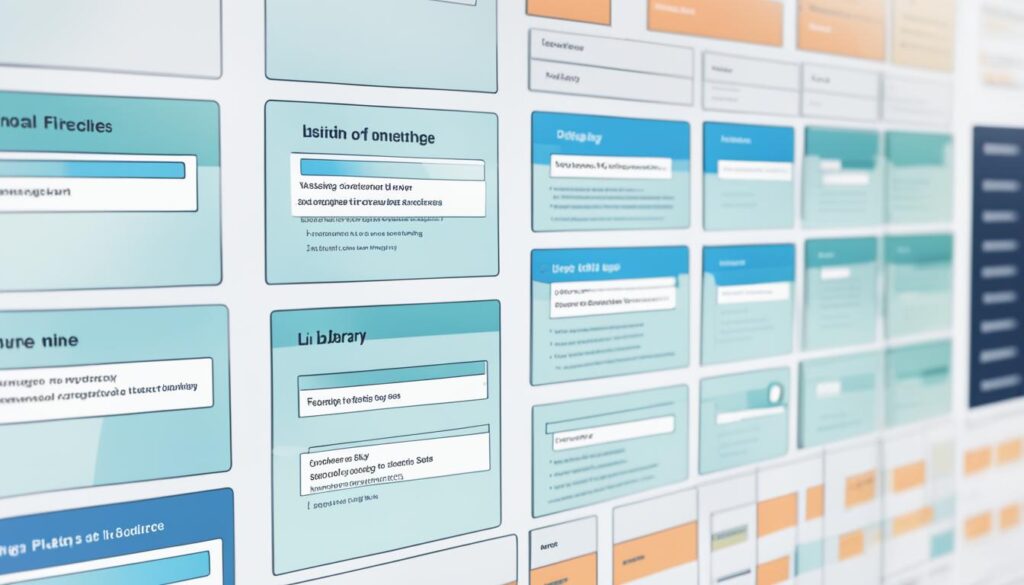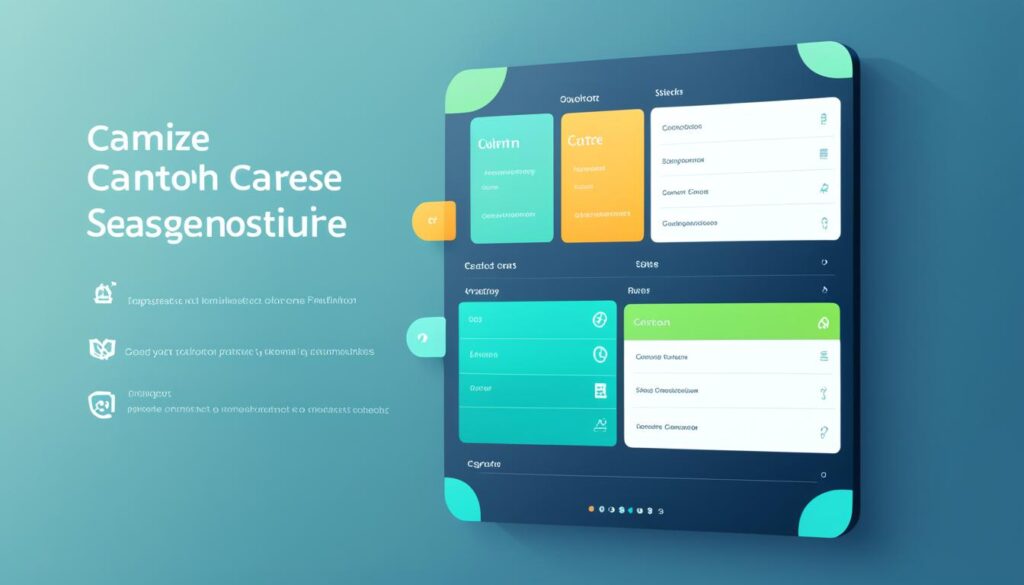A SaaS knowledge base is crucial for efficient self-service support and user satisfaction in the software as a service industry. It allows SaaS companies to scale their support and handle an influx of customers effectively. The SaaS industry is projected to be worth $307.3 billion by 2026, highlighting the need for a knowledge base in this growing sector. In this guide, we will explore the reasons why creating a knowledge base is important, the benefits it brings to SaaS companies, and how to optimize your knowledge base for success.
When it comes to providing support for your SaaS product, a well-organized knowledge base can make a significant difference. It allows your customers to find answers to their questions quickly and easily, without relying on traditional customer support channels. A knowledge base is a centralized repository of information about your product or service, including FAQs, user guides, tutorials, and troubleshooting tips.
Why Bother Creating a Knowledge Base?
A knowledge base is essential for SaaS companies looking to optimize their support processes and enhance the customer experience. While an FAQ page can provide limited assistance, a knowledge base offers a more comprehensive and organized solution for addressing customer inquiries. By providing a central repository of information, a knowledge base minimizes the need for customers to navigate through lengthy lists of questions, making it easier for them to find accurate and relevant answers using a prominent search bar.
A knowledge base streamlines support interactions and empowers customers to access self-service resources, resulting in reduced support volume and higher customer satisfaction. Furthermore, a knowledge base enables SaaS companies to organize their content effectively, simplifying navigation for customers and empowering them to find the information they need quickly and easily.
“A knowledge base is like a treasure trove of valuable information for both customers and internal teams. It not only helps customers find answers but also offers valuable insights and analytics for product and sales teams.”
The Benefits of a SaaS Knowledge Base
A saas knowledge base provides a range of benefits for SaaS companies:
- Improved customer satisfaction: By offering a self-service support option, a knowledge base empowers customers to find answers quickly and independently, leading to higher satisfaction levels.
- Reduced support volume: With a comprehensive knowledge base readily accessible to customers, the need for contacting support is minimized, resulting in reduced support ticket volume.
- Enhanced efficiency: By addressing common customer inquiries in a knowledge base, SaaS companies can focus their support resources on more complex issues, improving overall efficiency.
- Valuable insights: A knowledge base provides analytics and insights into customer behavior, search queries, and popular articles, allowing SaaS companies to refine their product offerings and improve their sales strategies.

By implementing a saas knowledge base, SaaS companies can deliver a seamless customer experience while optimizing internal processes. In the next section, we will explore the considerations when deciding to build or buy a knowledge base software.
Building vs. Buying a Knowledge Base
When it comes to creating a knowledge base for your SaaS company, you have two options: building it yourself or buying a hosted solution. Both approaches have their advantages and considerations, so let’s delve into each one to help you make an informed decision.
Building Your Own Knowledge Base
If you choose to build your own knowledge base, you have complete control over its development and customization. This allows you to tailor the knowledge base to your specific needs and ensure it aligns perfectly with your brand identity. Customization offers the flexibility to create a unique user experience and integrate it seamlessly with your existing systems.
However, building a knowledge base from scratch requires engineering expertise and significant time and resources. It involves developing a user-friendly interface, implementing advanced search functionality, and organizing and structuring your content effectively. Additionally, ongoing maintenance and updates will be your responsibility.
Buying a Hosted Solution
If you opt to buy a hosted solution, you can leverage the expertise of a dedicated team that specializes in knowledge base software. This solution provides quick setup, allowing you to get your knowledge base up and running swiftly. Additionally, you’ll have access to ongoing technical support and feature-rich options that are constantly updated.
By purchasing a hosted solution, you can minimize the upfront development costs associated with building your own knowledge base. This approach is particularly advantageous if your resources are limited, as it allows you to focus on other essential aspects of your business while relying on experts to handle the technical aspects of your knowledge base.
Choosing the Right Path for Your SaaS Company
When deciding whether to build or buy a knowledge base software, consider the complexity of your knowledge base needs and the resources available to your team. If you have the required technical expertise and sufficient resources, building your own knowledge base may offer more customization and control. On the other hand, if you prioritize quick setup and access to a support team, buying a hosted solution is a viable option.
Ultimately, the choice depends on your specific business requirements, budget, and the trade-off between customization and convenience. Both options can help you establish an effective knowledge base that empowers your customers and drives self-service support.

| Building Your Own Knowledge Base | Buying a Hosted Solution |
|---|---|
|
|
Start Creating a New Space for Your Support
Now that you have made the decision to create a knowledge base for your SaaS company, it’s time to build a new space for your support. This space should be easily accessible and align with your brand. By customizing the design of your knowledge base, you can give your customers a consistent experience across all channels.
One important aspect is choosing a custom domain for your knowledge base. This will make it easier for customers to find and navigate your support resources. Additionally, you can invite your team to collaborate on creating and updating articles, ensuring that the knowledge base remains up-to-date and relevant.
By creating a new space for your support, you can provide valuable self-service resources to your customers. They will be able to find answers to their questions and troubleshoot issues independently, improving their overall experience with your product or service.
To further enhance the effectiveness of your knowledge base, consider incorporating saas documentation and saas user guides. These resources will provide comprehensive instructions and insights to help your customers make the most of your product. With a well-designed knowledge base in place, you can build customer trust, reduce support costs, and drive user satisfaction.

Remember, the goal of your knowledge base is to empower your customers and streamline their support experience. Take the time to create a user-friendly interface, organize information in a logical manner, and ensure data security. By doing so, you can establish your knowledge base as a valuable hub of information, guiding your customers towards success.
The Role of a Knowledge Base in Reducing Customer Churn
A knowledge base is a powerful tool that can significantly reduce customer churn for SaaS companies. By providing comprehensive documentation, troubleshooting guides, and product usage guidance, a knowledge base empowers customers to find answers to common questions and overcome challenges on their own.
Customers can access the knowledge base at any time, eliminating the need to wait for support assistance. This self-service approach not only reduces the workload of your customer support team but also enhances the overall customer experience and satisfaction.
By addressing customer needs effectively through your knowledge base, you can greatly contribute to customer retention and loyalty. When customers can easily find solutions to their problems and have a positive experience with your software, they are more likely to continue using your product and become long-term advocates for your brand.
Investing in a well-organized and user-friendly knowledge base is an essential step in reducing customer churn and building strong relationships with your customers.
Benefits of a Knowledge Base in Reducing Customer Churn:
- 24/7 availability: Customers can access the knowledge base at any time, reducing their reliance on support team availability.
- Self-service empowerment: Customers can find solutions to their problems independently, promoting a sense of control and satisfaction.
- Reduced support volume: By addressing common questions and issues in the knowledge base, the need for customer support decreases.
- Improved customer experience: A well-structured and informative knowledge base enhances the overall experience for customers.
- Increased customer satisfaction: When customers can easily find answers and resolve their problems, satisfaction levels rise.
- Enhanced customer retention: Improved satisfaction and access to helpful resources lead to higher customer retention rates.
A knowledge base is not just a support tool; it’s a strategic asset that can help you build long-term relationships with your customers. By providing self-service resources and empowering your customers to find solutions on their own, you can reduce churn and create a loyal customer base.
Integrating a knowledge base into your customer support strategy is a crucial step in optimizing your SaaS business and ensuring customer success.

| Customer Churn Reduction Strategies | Knowledge Base Utilization |
|---|---|
| Personalized onboarding and training | Provide detailed product usage guides |
| Proactive customer outreach | Create troubleshooting guides for common issues |
| Continuous product improvement | Maintain an up-to-date knowledge base with revised articles |
| Exceptional customer support | Offer comprehensive documentation |
| Timely and relevant communication | Ensure easy search functionality within the knowledge base |
Key Components of a Stunning SaaS Knowledge Base
To create an exceptional SaaS knowledge base, there are key components that you should consider. These include overall appearance, navigation, visibility, revised articles, easy search functionality, organized content structure, and data security. Let’s explore each of these components in detail.
Overall Appearance
The appearance of your knowledge base should align with your brand identity and provide a consistent user experience. This includes choosing a clean and modern design, using relevant branding elements such as colors and logos, and ensuring that the layout is visually appealing and easy to navigate.
Navigation
Navigation is a critical aspect of a knowledge base. It should be intuitive and well-organized, allowing users to easily find the information they need. Consider implementing a clear and logical menu structure, with categories and subcategories, to help users navigate through your knowledge base effortlessly.
Visibility
Ensuring that your knowledge base is easily accessible to customers is essential. Make sure to prominently display links to your knowledge base on your website, support center, and other customer touchpoints. Additionally, consider implementing a search bar on your website to encourage users to search for answers within your knowledge base.
Revised Articles
Regularly reviewing and updating articles is crucial to keep your knowledge base content fresh and relevant. Set up a process to review and revise articles periodically, ensuring accuracy, relevance, and clarity. Encourage your team to contribute to this process and incorporate user feedback to make continuous improvements.
Easy Search Functionality
Having easy and robust search functionality is vital for a seamless user experience. Implement a powerful search engine that can quickly fetch relevant articles based on user queries. Offer search filters and advanced options to refine search results further.
Organized Content Structure
Organizing your knowledge base content efficiently is key to helping users find information quickly. Categorize articles based on topics, and use tags or labels to further classify and filter the content. Ensure that each article is placed in the appropriate category and tagged appropriately for ease of navigation.
Data Security
Protecting customer information and ensuring data security is of utmost importance. Implement robust security measures to safeguard customer data stored in your knowledge base. Regularly update security protocols and follow industry best practices to maintain the highest level of data security.
By incorporating these key components into your SaaS knowledge base, you can create a stunning resource that effectively supports your customers, enhances their experience, and boosts the overall success of your SaaS business.
How to Measure the Success of Your SaaS Knowledge Base
Measuring the success of your SaaS knowledge base is essential to evaluate its effectiveness and identify areas for improvement. By monitoring user engagement metrics, you can gain insights into user behavior and the popularity of your articles.
Start by analyzing page views, unique visits, and the amount of time users spend on your knowledge base pages. These metrics can indicate how often users access your content and the level of engagement they have with it. Additionally, tracking search queries can help you understand what users are searching for and whether they are finding the answers they need.
Reducing support tickets and tracking customer satisfaction scores are also valuable metrics to assess the impact of your knowledge base. If your knowledge base effectively addresses common customer inquiries and provides comprehensive documentation, you should see a decrease in the number of support tickets. Monitoring customer satisfaction scores can help you gauge how well your knowledge base meets customer needs and contributes to overall customer experience.
Collecting customer feedback is another crucial aspect of measuring the success of your knowledge base. Encourage customers to provide feedback on the helpfulness of your articles and any areas where they feel improvements can be made. Incorporating this feedback into your knowledge base design allows you to continuously optimize and ensure that it remains aligned with customer needs.
FAQ
Why is a SaaS knowledge base important?
A SaaS knowledge base is crucial for efficient self-service support and user satisfaction in the software as a service industry. It allows SaaS companies to scale their support and handle an influx of customers effectively.
How does a knowledge base benefit SaaS companies?
A knowledge base is essential for SaaS companies to reduce support volume and improve customer experience. It provides a more organized and comprehensive solution for handling customer inquiries, reduces the need for customers to scroll through a long list of questions, and offers valuable insights for product and sales teams.
Should I build or buy a knowledge base software?
It depends on the complexity of your knowledge base needs and the resources available to your team. Building your own knowledge base gives you more customization options and control but requires engineering time and ongoing maintenance costs. Buying a hosted solution allows for quick setup, access to a support team, and feature-rich options.
How do I start creating a knowledge base for my SaaS company?
Start by choosing a custom domain for your knowledge base and inviting your team to collaborate on creating and updating articles. Customize the design to align with your brand and provide a consistent user experience.
How does a knowledge base help in reducing customer churn?
A knowledge base provides comprehensive documentation, troubleshooting guides, and product usage guidance. By empowering customers to find answers to their questions and challenges on their own, it reduces the need for customer support and enhances the overall customer experience and satisfaction.
What are the key components of a stunning SaaS knowledge base?
Key components include overall appearance, navigation, visibility, revised articles, easy search functionality, organized content structure, and data security. These ensure a consistent user experience, easy access to information, fresh and relevant content, intuitive navigation, and secure protection of customer data.
How can I measure the success of my SaaS knowledge base?
Measure success through user engagement metrics such as page views, unique visits, time spent on pages, and search queries. Additional metrics include reduction in support tickets and tracking customer satisfaction scores. Regularly collect customer feedback and incorporate it into your knowledge base design for ongoing optimization.
